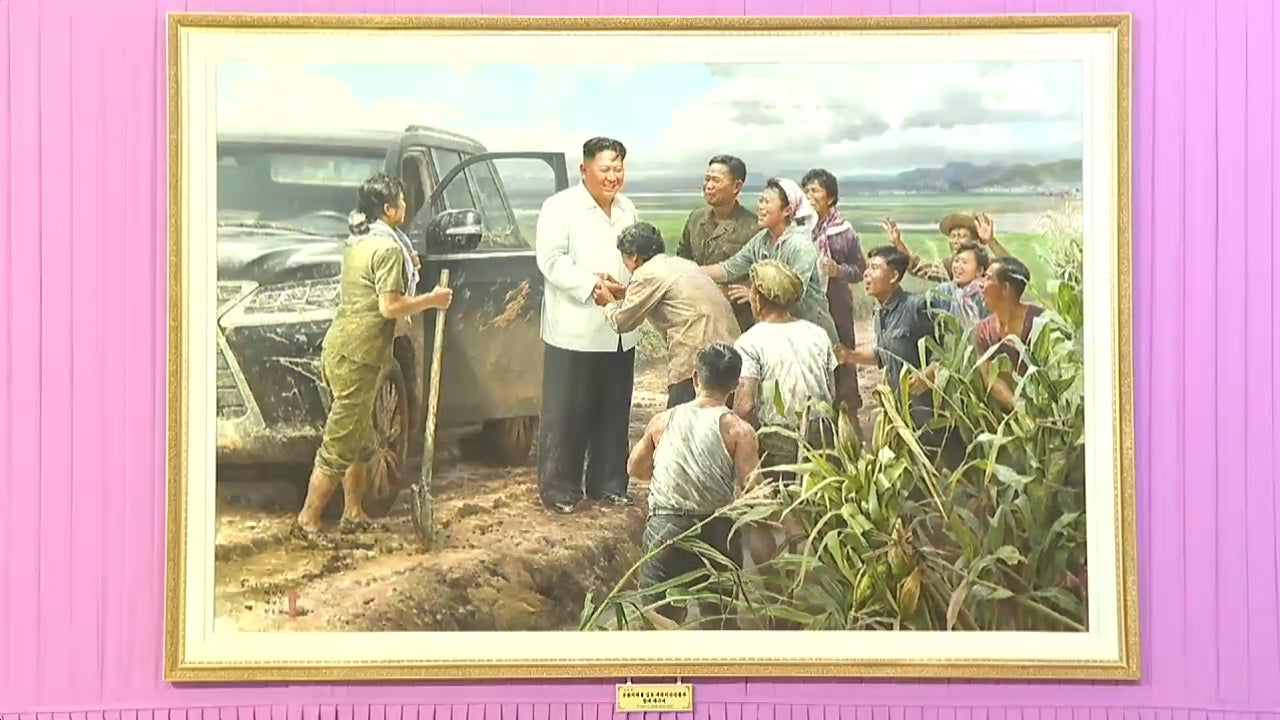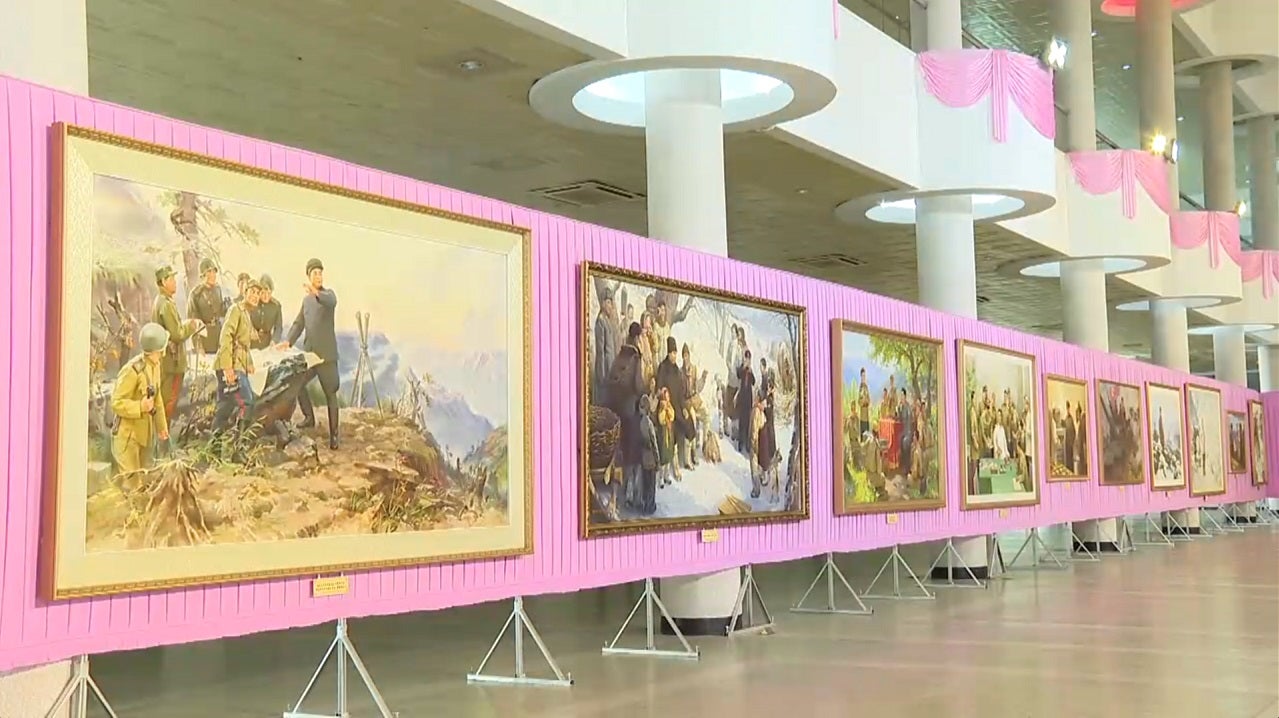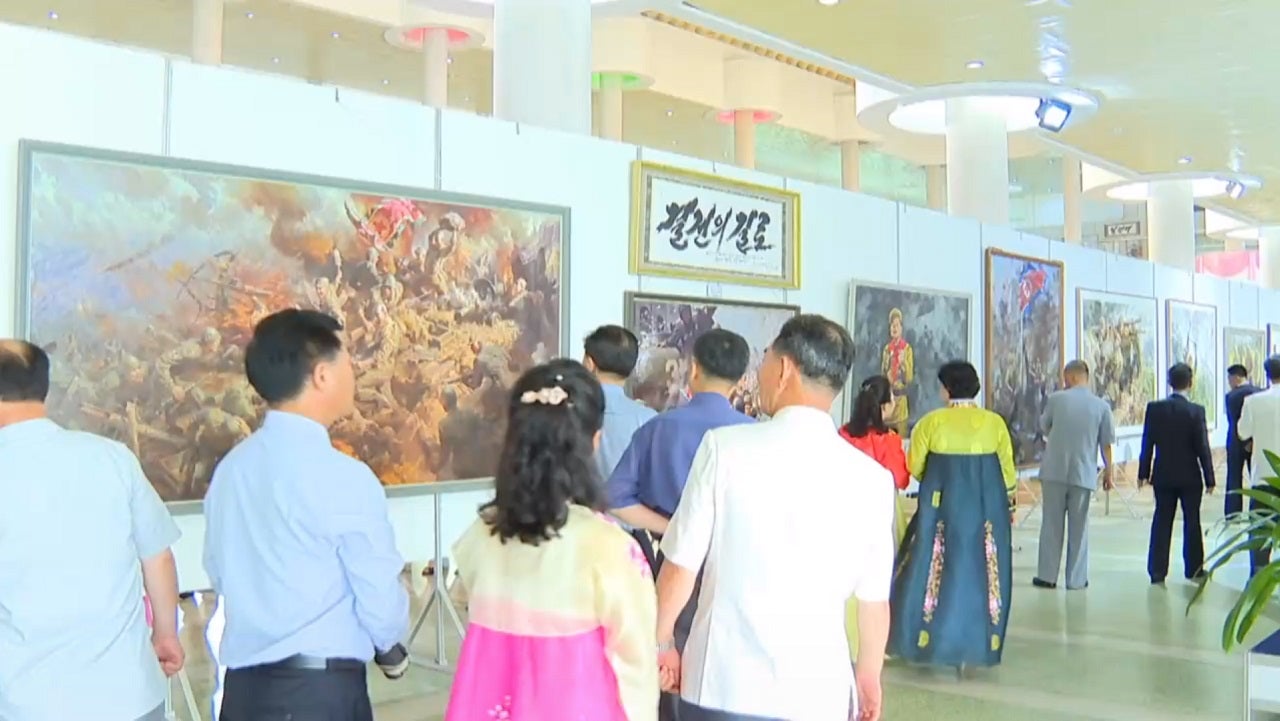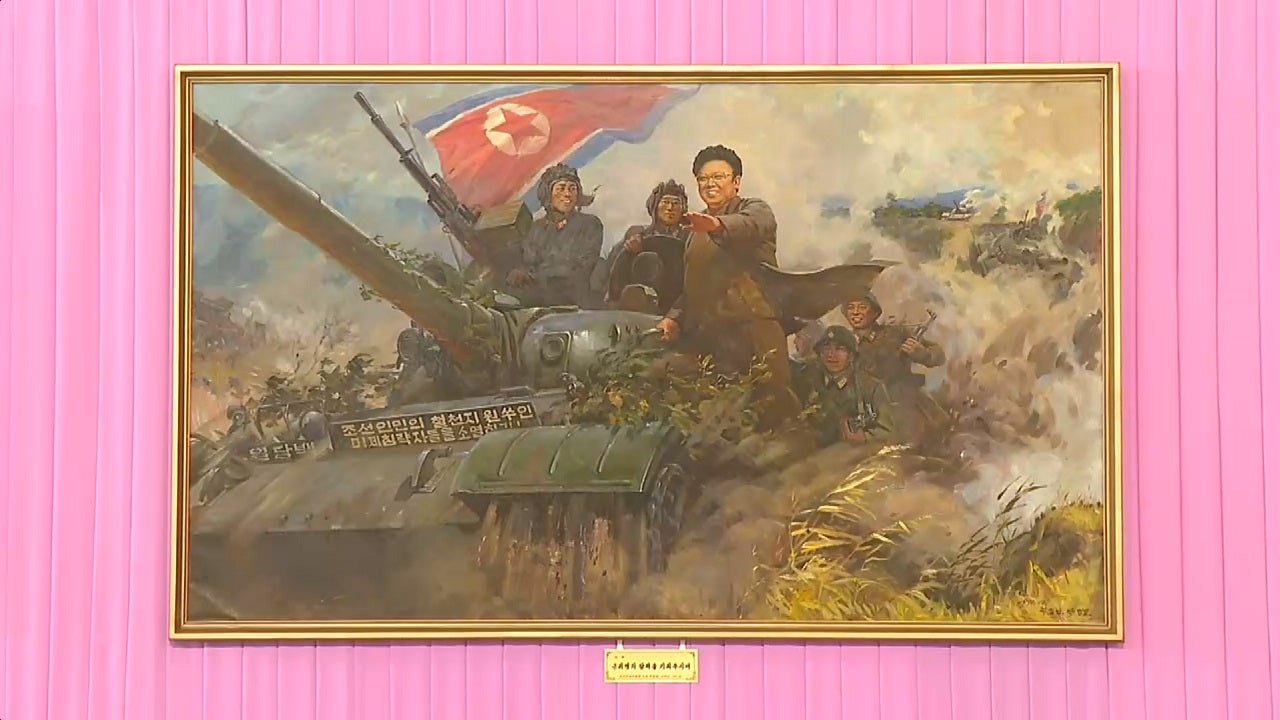A North Korean art exhibit unveiled the first paintings of the country’s leader, Kim Jong Un, a vital step in promoting his “cult of personality” in the country.
Each piece displays some outlandish or overly romantic vision of the country’s supreme leaders engaged in activities from glad-handing with farmers to riding a horse atop Mount Paektu, the tallest peak in North Korea.
The paintings debuted as part of a wider exhibit celebrating the 70th anniversary of the “victory in the Fatherland Liberation War,” the name used in North Korea to remember the signing of the Korean Armistice Agreement that ended the Korean War in 1953.
The exhibit included paintings of Kim’s predecessors — Kim Il Sung and Kim Jong Il. Hundreds attended the opening and observed the paintings, which eschew tradition with a prominent central position for Kim Jong Un’s painting that portends a possible shift in propaganda policy.
NORTH KOREAN, RUSSIAN DEFENSE MINISTERS HOLD MEETING IN PYONGYANG AMID CELEBRATIONS
Kim Jong Un depicted riding a horse atop Mount Paektu, the tallest peak in North Korea. (KCNA)
Prior displays arranged paintings so that Kim Jong Un’s pictures hung third in a sequence that included Democratic People’s Republic of Korea (DPKR) founder Kim Il Sung and Kim Jong Il, NK News reported.
State-owned Korean Central News Agency (KCNA) described the paintings as depicting “one victory after another in the confrontation with imperialism and the U.S. that have lasted for centuries.”

Kim Jong Un depicted meeting farmers and field workers in his country. (KCNA)
North Korea first formed following the end of World War II and the surrender of Japan, which had annexed the country in 1910. The Soviet Union occupied the area north of the 38th parallel, which served as the demarcation between the eventual entities of North and South Korea that formed in 1948, with the demilitarized zone (DMZ) forming in 1953.
TRAVIS KING’S FAMILY SAYS AMERICA SHOULD ‘FIGHT FOR HIM’ TO COME HOME FROM NORTH KOREA: REPORT
KCNA Watch, which aggregates reports from the state-owned agency, said the pieces would “remind the visitors of the immortal revolutionary history of Kim Jong Il, who firmly carried forward the history and tradition of war victory” alongside paintings of “the illustrious commander” Kim Jong Un.

A screenshot from a Korean Central News Agency broadcast announcing the opening of a gallery celebrating the country’s 70th anniversary. (KCNA)
The paintings also show “the daily-changing appearance of the country under the guidance of the Central Committee of the great Workers’ Party of Korea,” creating the narrative of positive change that the party wishes to present to the country even as people starve due to border closures and famine following the coronavirus pandemic.

Attendees walk past various paintings commemorating “events” in North Korea’s history. (KCNA)
The situation grew so dire that Kim Jong Un eventually declared suicide, which had increased across the country as people chose death over slow starvation and suffering, an “act of treason against socialism.”
US, SOUTH KOREA TO HOLD 1ST-EVER TRAINING IN CALIFORNIA AFTER NORTH DETAINS AMERICAN SOLDIERS
Choe Chang Hak, vice department director of the Central Committee of the Workers’ Party of Korea and Choe Hui Thae, chairman of the Pyongyang Municipal People’s Committee, attended the official opening ceremony for the exhibit along with officials of ministries and national institutions and creators in the field of fine art.

Kim Jong Il depicted riding atop a tank and guiding his troops to “victory.” (KCNA)
The identities of the artist or artists responsible for the paintings remain unknown, The Times UK reported, calling Kim Jong Un’s personal court “opaque” and difficult to read. Prior to the exhibit, the country did not allow artists to paint Kim Jong Un, but the restrictions were recently lifted, with Kim reportedly commissioning three mosaic murals of himself for public display.
CLICK HERE TO GET THE FOX NEWS APP
Kim’s move to display many public works of himself follows a similar pattern his father and grandfather followed, with displays of portraits and statues made public in the early years of their reigns. No statues have yet been observed of Kim Jong Un.
Additional paintings include a depiction of recent missile tests, including the Hwasong-18 intercontinental ballistic missile (ICBM), and the military parade from February.